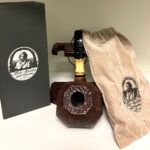Fred Brown
 In the not-too-distant past, it wasn’t unusual to find old men in work-worn and faded hats smoking pipes or chewing tobacco and spitting juice at a fat iron stove in the center of a well-oiled and creaky pine wood floor inside a rural general store.
In the not-too-distant past, it wasn’t unusual to find old men in work-worn and faded hats smoking pipes or chewing tobacco and spitting juice at a fat iron stove in the center of a well-oiled and creaky pine wood floor inside a rural general store.
Other bewhiskered gents might be gently pouring and packing tobacco from a tin can into thin cigarette paper, licking and expertly hand-rolling it into a straight, white smoke. In later terminology, the rolled cigarette would be called a joint or a reefer.
Funny, today tobacco is in disfavor, and marijuana, the leaf heart of the reefer crowd, is not only accepted, but it is also legal in several states. Any year now, tobacco could find itself behind bars, as illicit as marijuana once was.
As we move into a new year, I find myself nostalgic. I remember watching old-timers smoking their pipes in those one-size-fits-all general stores, a few steps removed from a red-dirt Georgia road. Red dust storms trailed vehicles as they bumped along those rutted roads, pocked from winter snow and spring rain.
My grandmother, Maude, and my grandfather, CJ (that was his given name and not his initials) ran a 300-acre farm down in the sand and swamps of South Georgia.
The farmland was part of a Revolutionary War land grant. Seems one of Maude’s great-great-great grandfathers fought in the American Revolution and took land as payment, as did many soldiers of the time who had survived shot and shell.
Farming a living out of the soil is not easy. It is seven days a week, from sunup to sundown and on into the night. A peanut, tobacco, sugarcane farm is even more daunting, needing a great deal of care and attention.

CJ handled planting and harvesting and then made a little moonshine with his sugarcane. He also grew some of the fattest, sweetest watermelons ever eaten. CJ also claimed that he soaked his watermelon seeds in sorghum syrup to sweeten them.
Maude dipped snuff and smoked a corncob pipe which she made from corncobs from the farm corn crop. She whittled out a small hole in the cob and ran a hollowed out a tough swamp reed into the cob.
She dipped snuff and smoked her cob at the same time. I don’t advise trying that unless you have the intestinal fortitude of an apex predator.
Maude was about as big as a cornstalk and she could outwork two or three men, and often did. Laboring in peanut and tobacco fields in that era required a kind of work ethic that is rare today. There seemed to be no quit in the long hours.
Both peanuts, a huge Georgia product even now, and tobacco, once the state’s largest money crop, demanded strong backs, and no aversion to the endless grind in the field and barn.
I remember the first time I saw Maude smoking. I told her I wanted to smoke a cob, just like her. I wasn’t old enough, she told me. But, soon as I was, she’d carve me a cob.
I wish I could say here that I have the cob Maude carved for me, but I don’t. She just never got around to the carving.
When I asked about my cob, her answer was, "When you get old enough." Maybe Maude thought I was never going to be old enough.

She correlated smoking and dipping snuff with relaxation, especially after a long day in the kitchen, cooking three meals for my grandfather, her two sons, and several field hands.
Her day in the kitchen began a couple of hours before CJ and her boys slid their feet beneath her enormous round dinner table, a table as big as a baby grand piano. It had to be large enough to hold all the food Maude prepared for hard-working men.
That kitchen work was no fun, either. I was employed hauling water and wood for her wood-burning cook stove, which she refused to relinquish even when the REA (Rural Electrification Act of 1936) wired up most of the homes along that long, red dirt road in front of Maude’s wood-frame farm home.
Smoking her cob at night on the wrap-around front porch, telling stories, was a time I recall as being magical. We watched dancing fireflies and the sparkle and shine of stars as Maude told stories of her uncles, who fought in the Civil War, or the many ghost stories famous in that region.
I was enthralled and loved the stories and the smell of her pipe as much as anything I have ever experienced.
Is it little wonder that I have always smoked a pipe, starting in my teen years? Maude had a great pull on me.
My grandfather hand-rolled his cigarettes, as did one of his two sons and all the field hands. That never appealed to me. It wasn’t what Maude would do.
She died at the age of 93, smoking her cob and dipping her snuff to the end. And over the years, I have often asked myself the question of, "What would Maude do?"
After trying to channel her spirit, I would make a decision on some pertinent matter in life.
I’m certain that I either never heard a word from Maude, or I paid no heed to her mystical advice on many decisions that turned out less than successful.
To Maude, smoking was not a bad thing. It was medicinal. Like her snuff, it was a way to ease the pain of so much hard work, and hard times.
She lived through the Great Depression years and told me once that, "Not only were there no jobs, there was no money."
I am pretty sure she would not understand the attitudes today against tobacco. It was the crop that purchased shoes for her children at the start of a new school year (along with CJ’s moonshine sales).
Tobacco paid taxes on the land; it was the one crop she could count on always. Even if the banks failed again, Maude would have her tobacco crop.

Some critics might say that this is a very romantic view of tobacco. Perhaps so, since the leaf is so demonized today. Maude was no romantic, though. She lived in the real hard plowed rows of life. To her, the tobacco leaf was salvation on a sandy farm.
Maude’s time, of course, has come and gone. She was born into another age and place, a world that is all but unrecognizable today.
There are few dirt roads left for little boys to walk down and kick rocks skittering into a watery ditch full of crayfish.
There are few grandfathers left who get their grandsons to help with the mule-powered sorghum mill, the contents of which would later be used to sweeten moonshine and melon seeds.
There are few grandmothers willing to carve a cob pipe for their grandson to smoke, and see absolutely nothing wrong in that.
There are very few rural stores where old men in work-worn hats gather to smoke their pipes and spatter a fat-bellied stove with tobacco juice.
In some respects, we have outrun our past and outlived our civility.
And what would Maude do?
I think she would carve a corncob pipe and tell me to sit a spell and smoke a bowl for her.
|
|



















Nice one, probably one of the best articles I have read here.
Very good read and an interesting point about marijuana vs. tobacco that I think a lot of the pro weed advocates miss. It drives me crazy because I suspect if one did a study on it, they would find out the pro weed crowd has a HUGE overlap with the anti-tobacco ragers. Just a suspicion.
Great story Fred! Thanks.
Fred, keep them coming. You always tell a great story and I always enjoy them. Your inheritance from Maude no doubt. Dutch
I enjoyed this little, wistful piece very much. Thanks for the fine writing and illustrations.
Wonderful story and remembrances.
My grandmother (mother’s side) also dipped snuff as her husband had quit smoking some years before. Bruton was the brand and I can remember her carrying around a tin in her purse and a tin can stuffed with tissue paper almost everywhere she visited. We had many enjoyable times together while I was growing up because of her down home wit and conversations of long ago. She lived to be 97.
My father started me smoking a pipe in an attempt to get me to quit cigarettes but I soon learned to enjoy both though I later quit cigs.
I always said I was born addicted to tobacco as both of my parents smoked.
Thanks for the reminder of memories.
Great story, well told as usual. Here is a pipe to Maude.
Beautiful story Fred. I was born in 1971, but was raised as a farm boy for a few years. I miss riding to the nearby small town to pick up feed for cattle and chickens. All the while barefoot in the old pickup with my Dad. And the red dirt front yard, playing all day.
Beautiful story indeed…
I don’t understand these new days we live in, and the paradox of marijuana. We smoke our pipes (cigars too) peacefully, outside the view of the crowd… even better, we don’t inhale the smoke directly…
Maybe we lost the opportunity to get angry and make our rights be respected by the others.
It is very sad walk the streets and find out the infamous “head shops” instead of truly tobacconists.